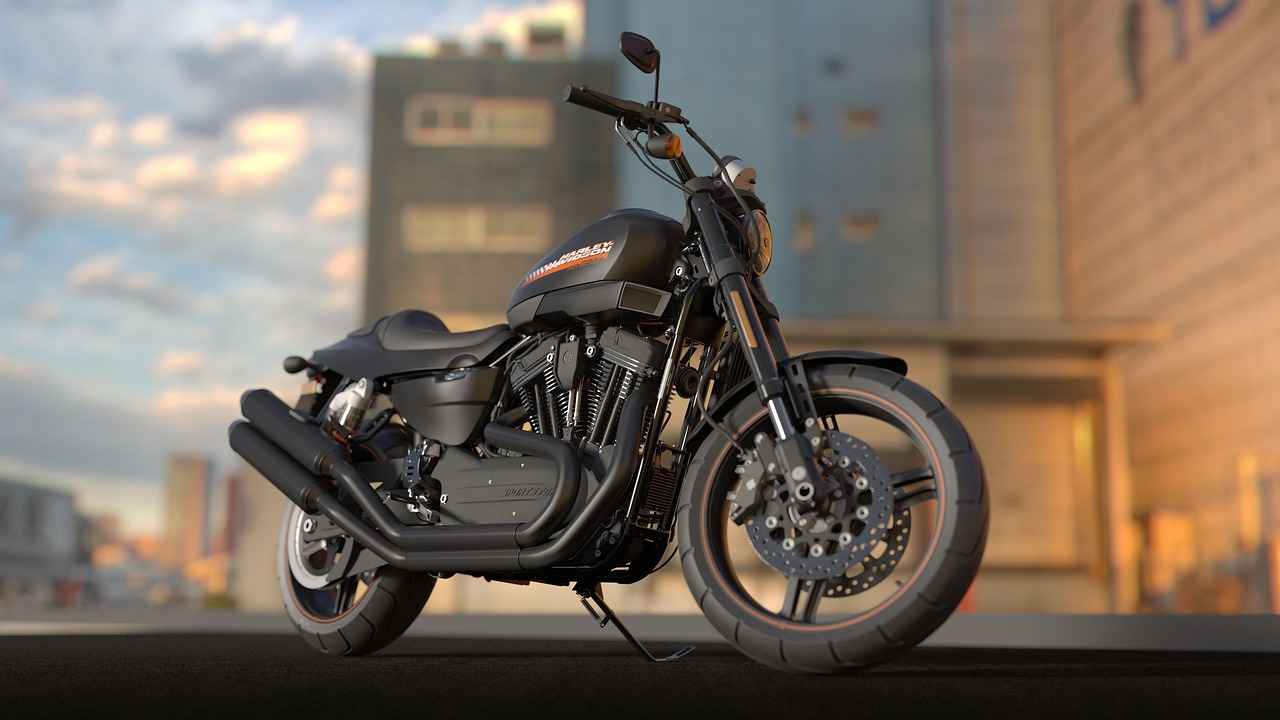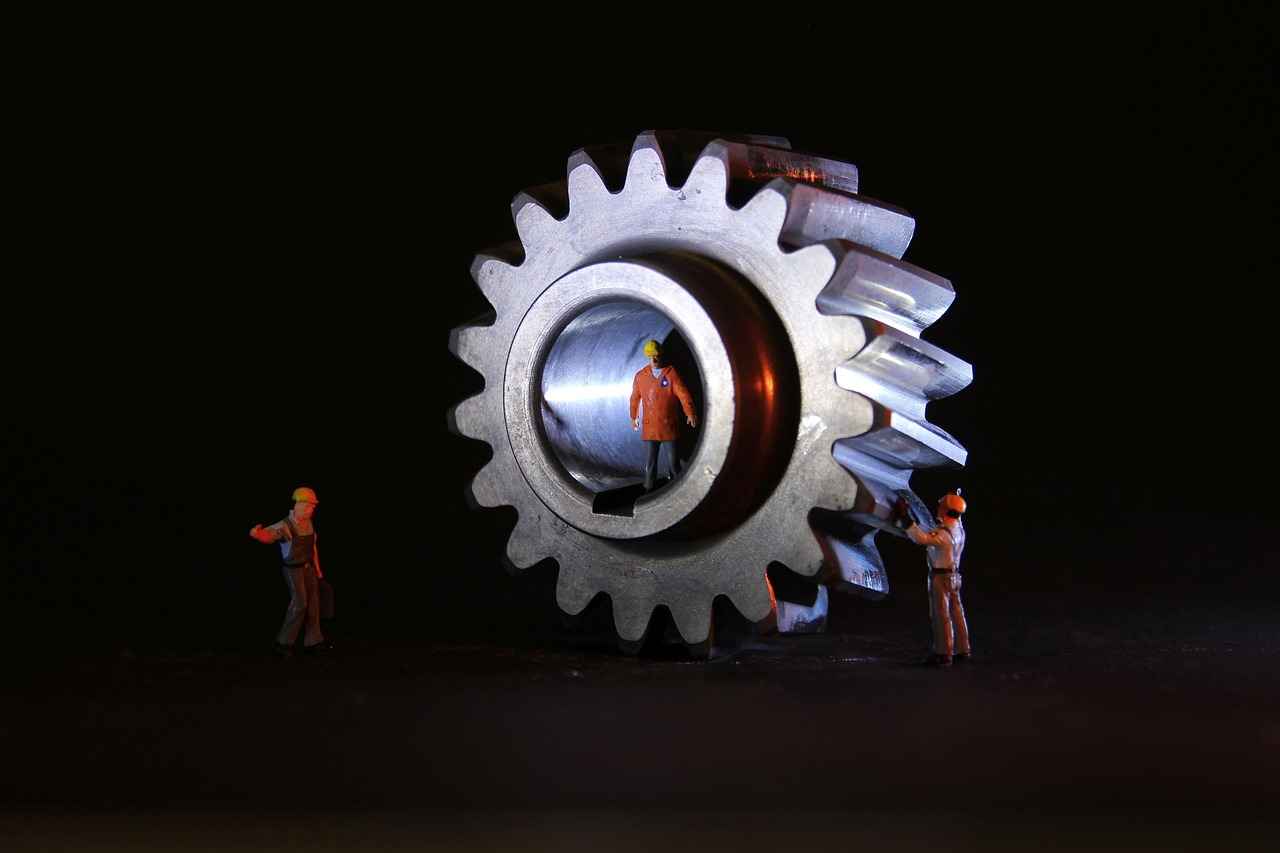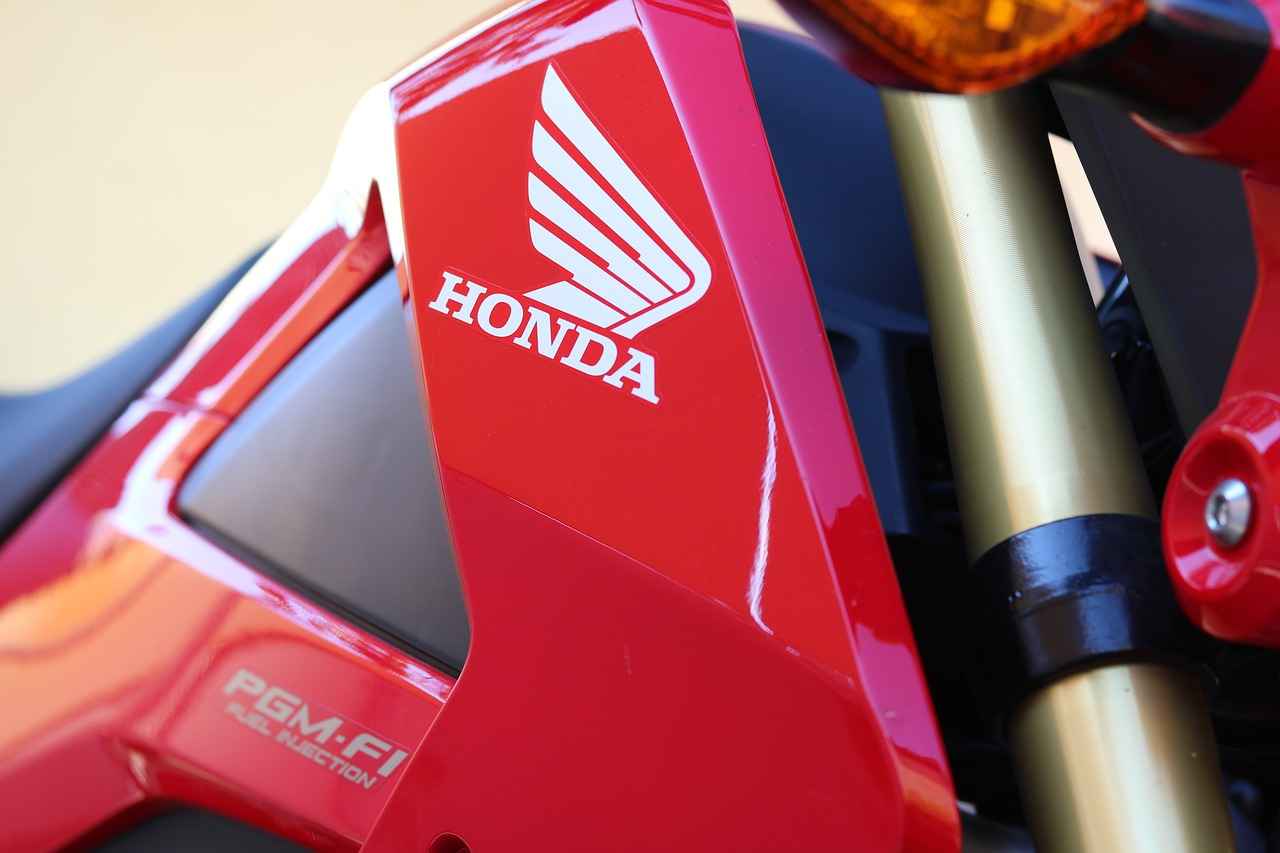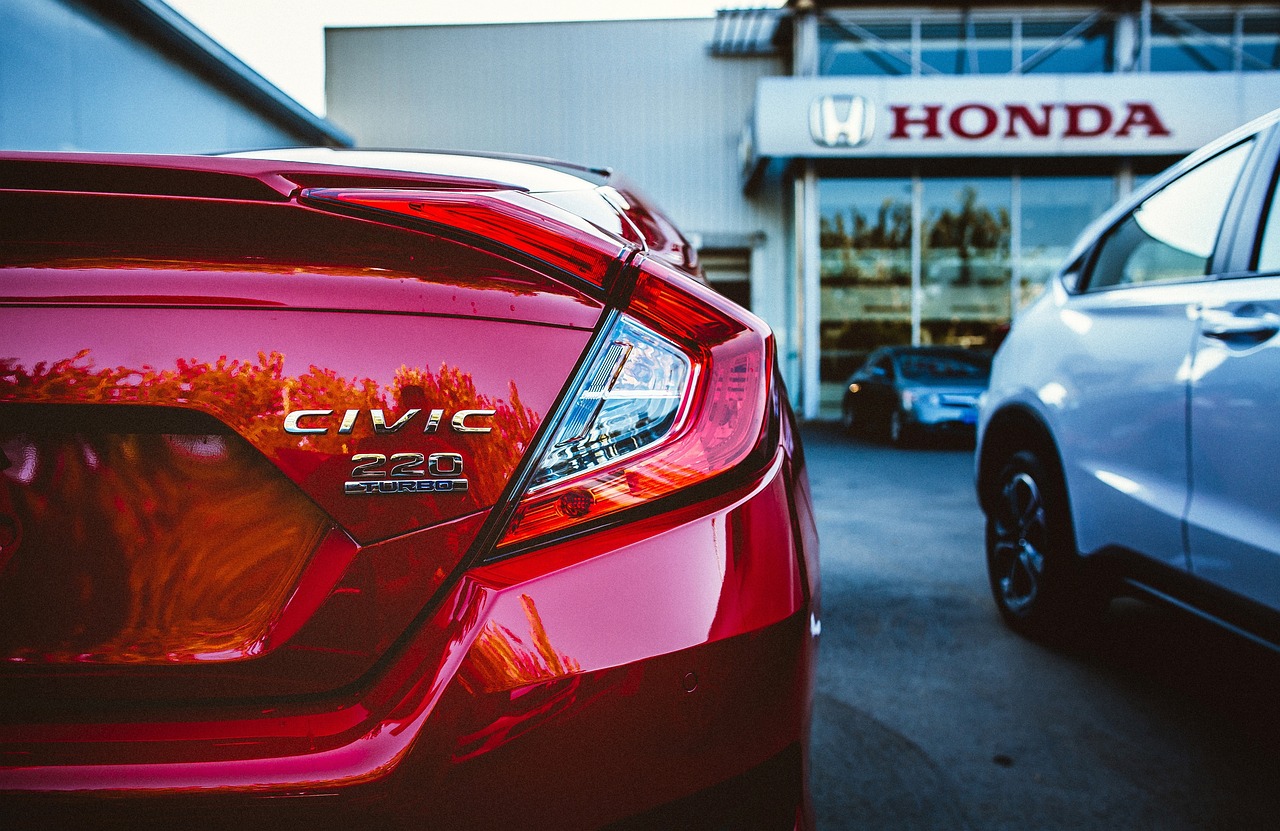The Honda Accord has long been a staple in the midsize sedan market, known for its blend of performance, comfort, and, most importantly, reliability. This article delves into the reliability of Honda Accords, drawing from expert reviews, owner experiences, and industry ratings to provide a comprehensive understanding of this vehicle’s dependability.
The Honda Accord stands out for several reasons that contribute to its reputation for reliability. Key features include:
- Quality Engineering: Honda’s commitment to engineering excellence ensures that the Accord is built to last.
- Durable Materials: The use of high-quality materials in construction enhances the vehicle’s longevity.
- Consistent Performance: The Accord is known for its smooth ride and dependable performance across various conditions.
When assessing reliability, it’s crucial to compare the Honda Accord with its competitors. Many rival midsize sedans may offer similar features, but the Accord often surpasses them in long-term reliability ratings. For instance, brands like Toyota and Nissan also produce reliable vehicles, yet the Accord frequently receives higher marks in owner satisfaction and fewer reported issues.
Industry experts play a vital role in evaluating vehicle reliability. Notable ratings include:
- Consumer Reports: This organization consistently ranks the Honda Accord among the top midsize sedans for reliability, citing its low incidence of repairs.
- J.D. Power: Annual dependability studies highlight the Accord’s performance, often placing it at the top of the reliability charts.
Real-world experiences from Honda Accord owners provide invaluable insights into the vehicle’s reliability. Many owners report minimal issues over the years, praising the vehicle’s longevity and fuel efficiency. Testimonials often highlight how their Accords have exceeded expectations in terms of maintenance costs and overall performance.
Despite its strong reliability record, some Honda Accord models may experience specific issues:
Transmission issues can sometimes arise, particularly in older models. These problems, while not widespread, can affect performance and may require costly repairs.
Some owners have reported electrical system failures, which can lead to inconveniences. Common issues include malfunctioning sensors and battery problems, though they are generally manageable with routine maintenance.
Proper maintenance is crucial for ensuring the longevity of any vehicle. Here are some practical tips for maintaining a Honda Accord:
Adhering to a regular oil change schedule is essential for maintaining engine health. This simple practice can significantly enhance the lifespan of your vehicle.
Regular tire maintenance is vital for safety and performance. Ensuring proper tire pressure and scheduling rotations can improve handling and extend tire life.
Expert opinions offer valuable insights into the reliability of Honda Accord. Automotive magazines often conduct in-depth reviews, highlighting the Accord’s strengths in durability and performance.
Many publications consistently praise the Honda Accord for its reliability, noting its robust design and user-friendly features.
Certified mechanics frequently recommend the Honda Accord due to its low maintenance costs and fewer repair issues compared to other vehicles in its class.
Considering its reliability and overall performance, the Honda Accord is often viewed as a worthy investment. Its resale value remains high, and many owners find that the long-term savings on maintenance and repairs make it a financially sound choice.

What Makes Honda Accord a Reliable Choice?
The Honda Accord has long been a favorite among car buyers, often regarded as one of the most reliable vehicles on the market. This reputation stems from a combination of factors, including exceptional engineering, high-quality materials, and a consistent track record of performance. In this section, we will delve deeper into the specific features that contribute to the Accord’s esteemed reliability.
- Robust Engineering: Honda is known for its meticulous engineering practices. The Accord is designed with precision, ensuring that each component works harmoniously to deliver optimal performance. This attention to detail minimizes the risk of mechanical failures.
- High-Quality Materials: The materials used in the construction of the Honda Accord are selected for their durability and longevity. From the engine components to the interior finishes, every element is built to withstand wear and tear, contributing to the vehicle’s overall lifespan.
- Consistent Performance: The Honda Accord is engineered to deliver a smooth and reliable driving experience. Whether it’s city driving or long highway trips, the Accord maintains its performance standards, earning the trust of its drivers.
- Advanced Safety Features: Safety is a critical aspect of reliability. The Accord is equipped with cutting-edge safety technologies, such as collision mitigation braking and lane-keeping assist, which not only protect passengers but also enhance the vehicle’s overall reliability by preventing accidents.
- Strong Resale Value: The Honda Accord retains its value exceptionally well compared to many competitors. A strong resale value is often an indicator of reliability, as it reflects the vehicle’s performance and owner satisfaction over time.
Furthermore, the Honda Accord consistently receives high marks in reliability ratings from industry experts and consumer feedback. Organizations such as J.D. Power and Consumer Reports frequently rank the Accord highly in their assessments, citing its longevity and minimal need for repairs. This ongoing recognition reinforces the notion that the Accord is not just a car; it’s an investment in dependability.
Moreover, the Honda Accord is designed for ease of maintenance. Owners can easily find parts and service, which further enhances its reliability. Regular maintenance schedules are easy to follow, and many owners report that their Accords have run smoothly for well over a decade with proper care.
In summary, the Honda Accord stands out as a reliable choice for anyone in the market for a midsize sedan. Its combination of robust engineering, high-quality materials, consistent performance, advanced safety features, and strong resale value all contribute to its esteemed reputation. When considering a vehicle that promises longevity and dependability, the Honda Accord undoubtedly deserves a place at the top of the list.

How Do Honda Accords Compare to Competitors?
When it comes to choosing a midsize sedan, the Honda Accord stands out for its reputation for reliability. However, it is essential to assess how the Accord compares to its competitors in the market. This section delves into the performance and reliability of the Honda Accord in relation to other popular midsize sedans.
Understanding how the Honda Accord stacks up against its competitors is crucial for potential buyers. The midsize sedan segment includes several strong contenders, such as the Toyota Camry, Hyundai Sonata, and Nissan Altima. Each of these vehicles has its unique strengths and weaknesses, making a direct comparison vital for informed decision-making.
Reliability ratings from industry experts provide valuable insights into the performance of the Honda Accord compared to its rivals. Organizations like J.D. Power and Consumer Reports regularly evaluate vehicles based on owner feedback and performance metrics. The Honda Accord consistently receives high marks in these evaluations, often outperforming competitors in categories such as overall reliability and owner satisfaction.
Owner experiences offer a unique perspective on the reliability of the Honda Accord. Many owners report minimal issues over the years, with regular maintenance contributing to their vehicle’s longevity. In contrast, some competitors may receive mixed reviews regarding reliability, with owners citing more frequent repairs or issues.
While the Honda Accord is known for its reliability, it is essential to consider the common issues reported in its competitors. For example, the Toyota Camry has faced criticism for its transmission problems in certain model years, while the Nissan Altima has been noted for electrical system concerns. Such issues can impact the long-term reliability of these vehicles, making the Accord a more appealing option for buyers prioritizing dependability.
Another critical factor in assessing reliability is the cost of maintenance. The Honda Accord typically boasts lower maintenance costs compared to many of its competitors. This affordability can be attributed to the availability of parts and the simplicity of repairs, which appeals to budget-conscious consumers.
Performance is another crucial aspect when comparing the Honda Accord to its competitors. While many midsize sedans offer a comfortable ride, the Accord is often praised for its responsive handling and fuel efficiency. In comparison, some competitors may lack the same level of performance, which can influence a buyer’s decision.
In summary, the Honda Accord stands out in the midsize sedan market due to its impressive reliability ratings, positive owner experiences, and lower maintenance costs. When compared to competitors like the Toyota Camry, Hyundai Sonata, and Nissan Altima, the Accord often emerges as a top choice for those seeking a dependable and well-rounded vehicle. Ultimately, potential buyers should weigh these factors carefully to determine if the Honda Accord aligns with their needs and preferences.
Reliability Ratings from Industry Experts
The reliability of a vehicle is a crucial consideration for potential buyers, and the Honda Accord has consistently ranked high in this regard. Industry experts have conducted extensive evaluations, providing insights into the Accord’s performance and dependability. This section delves into the reliability ratings from trusted organizations, including J.D. Power and Consumer Reports, highlighting the Accord’s standing in the competitive midsize sedan market.
J.D. Power is renowned for its rigorous analysis of vehicle reliability. Their annual dependability studies assess various aspects of vehicles, including mechanical issues and owner satisfaction. The Honda Accord has frequently received high marks in these evaluations. In their latest report, the Accord was recognized for its low incidence of reported problems, making it a top contender in the midsize sedan category.
- Overall Dependability Score: The Honda Accord scored exceptionally well, often landing among the top three in its class.
- Owner Satisfaction: Owners report high levels of satisfaction with their Accords, particularly praising its comfort and fuel efficiency.
Consumer Reports is another authoritative source that evaluates vehicle reliability based on extensive surveys and owner feedback. The Honda Accord consistently ranks as one of the most reliable vehicles in its segment. According to their latest findings:
- Long-Term Reliability: The Accord has shown remarkable durability over the years, with many owners reporting minimal issues after several years of ownership.
- Performance Ratings: The vehicle’s performance in various categories, such as braking, handling, and fuel economy, has received high praise.
When assessing the reliability of the Honda Accord, it is essential to compare it with its competitors. Many midsize sedans, such as the Toyota Camry and Nissan Altima, also receive favorable ratings. However, the Accord often stands out due to its combination of dependability and owner satisfaction.
| Vehicle Model | J.D. Power Reliability Score | Consumer Reports Reliability Rating |
|---|---|---|
| Honda Accord | 85/100 | 4.5/5 |
| Toyota Camry | 82/100 | 4.0/5 |
| Nissan Altima | 78/100 | 3.5/5 |
These ratings illustrate that while the Honda Accord competes closely with other models, it often edges them out in terms of overall reliability and owner satisfaction.
In summary, the Honda Accord’s reliability is well-documented through the evaluations of J.D. Power and Consumer Reports. With high scores in dependability and owner satisfaction, the Accord remains a top choice for anyone seeking a reliable midsize sedan. By considering these expert insights, potential buyers can make informed decisions about their next vehicle purchase.
Consumer Reports Insights
The Honda Accord has consistently been recognized for its **dependability** and **performance**, making it a favorite among car buyers. Among the various sources that evaluate vehicle reliability, Consumer Reports stands out as a trusted authority. This section delves into the insights provided by Consumer Reports regarding the long-term reliability of the Honda Accord, shedding light on specific ratings, owner feedback, and overall performance.
Consumer Reports evaluates vehicles based on extensive testing and owner surveys, providing a comprehensive view of reliability. The Honda Accord has consistently received high marks in their evaluations, often ranking among the top in its class. In their latest report, the Accord achieved an impressive reliability score of **85 out of 100**, placing it in the upper echelon of midsize sedans.
Several factors contribute to the Honda Accord’s high reliability ratings from Consumer Reports:
- Engineering Excellence: The Accord’s engineering is designed for longevity, with robust components that withstand wear and tear.
- Quality Materials: Honda uses high-quality materials in the Accord’s construction, enhancing its durability and performance over time.
- Consistent Performance: Owners report minimal issues with the Accord, showcasing its dependable performance across various driving conditions.
Consumer Reports also compiles feedback from actual Honda Accord owners, providing valuable insights into real-world reliability. Many owners express satisfaction with their Accord’s performance, often highlighting the following:
- Low maintenance costs over the years.
- High resale value, indicating strong demand in the used car market.
- Comfortable ride quality and spacious interior, making it a practical choice for families.
While the Honda Accord is generally reliable, some owners have reported specific issues. Consumer Reports notes that common concerns include:
- Transmission Problems: Some models have experienced transmission slippage or failure, particularly in older vehicles.
- Electrical System Glitches: Owners occasionally report issues with the electrical system, such as malfunctioning dashboard lights or infotainment systems.
In terms of reliability, the Honda Accord often outshines its competitors. Consumer Reports frequently compares the Accord to other midsize sedans, noting its superior performance metrics and owner satisfaction ratings. For instance, when placed alongside vehicles like the Toyota Camry and Nissan Altima, the Accord tends to score higher in reliability and overall owner happiness.
Based on the insights from Consumer Reports, the Honda Accord stands out as a **reliable** and **well-engineered** vehicle. With its impressive ratings, positive owner feedback, and minimal reported issues, it remains a smart choice for anyone seeking a dependable midsize sedan. Whether you prioritize long-term reliability or resale value, the Honda Accord is a vehicle worth considering.
J.D. Power Evaluations
The Honda Accord has long been a staple in the midsize sedan market, known for its reliability and performance. One of the most respected sources for evaluating vehicle dependability is J.D. Power, which conducts annual studies assessing various aspects of vehicle reliability. In this section, we will delve into the findings from J.D. Power regarding the Honda Accord, highlighting its performance in dependability studies and what these results mean for potential buyers.
J.D. Power’s dependability studies are designed to measure the number of problems experienced by owners of three-year-old vehicles. These studies cover a wide array of categories, including performance, comfort, and technology. The results are based on surveys conducted with real vehicle owners, providing a reliable snapshot of how vehicles hold up over time.
The Honda Accord consistently ranks highly in J.D. Power’s dependability studies. In the latest report, the Accord received accolades for its low incidence of reported problems compared to other vehicles in its class. This reinforces its reputation as a dependable choice for families and individuals alike.
- Engineering Excellence: The Accord’s design incorporates high-quality materials and advanced engineering, which contribute to its longevity.
- Consistent Performance: Owners report that the vehicle performs reliably under various driving conditions, further enhancing its dependability.
- Strong Safety Ratings: The Accord’s safety features and ratings also play a role in its overall reliability perception.
When compared to competitors in the midsize sedan segment, the Honda Accord often outshines other models in reliability ratings. For instance, while some competitors have struggled with issues such as transmission problems or electrical system failures, the Accord has maintained a solid performance record, making it a preferred choice among consumers looking for a dependable vehicle.
Feedback from Honda Accord owners further supports J.D. Power’s findings. Many owners express high levels of satisfaction regarding their vehicle’s reliability, noting that they rarely encounter significant issues. This positive sentiment is reflected in the Accord’s resale value, which tends to remain strong due to its dependable nature.
Automotive experts frequently cite the Honda Accord as a top contender in the reliability stakes. Reviews from various automotive publications highlight its durability and low maintenance costs, which are crucial factors for buyers considering long-term ownership.
In summary, the Honda Accord’s performance in J.D. Power’s dependability studies, combined with positive owner feedback and expert reviews, underscores its reputation as a reliable vehicle. For those in the market for a midsize sedan, the Accord stands out as a wise investment, offering both peace of mind and lasting value.
Owner Experiences and Testimonials
The reliability of the Honda Accord is often highlighted by both experts and enthusiasts alike. However, real-world experiences from actual owners provide a deeper and more personal perspective on this vehicle’s dependability. In this section, we will explore various testimonials and feedback from Honda Accord owners to give you a well-rounded view of its performance over the years.
Many Honda Accord owners express their satisfaction with the vehicle’s long-lasting performance and minimal maintenance needs. Below are some key themes that emerge from owner testimonials:
- Durability: A significant number of owners report that their Accords have exceeded 200,000 miles without major issues, showcasing the car’s robust engineering.
- Fuel Efficiency: Numerous testimonials highlight the impressive fuel economy of the Accord, making it a cost-effective choice for daily commuting.
- Comfort and Space: Owners frequently mention the spacious interior and comfortable seating, which enhance the overall driving experience.
To illustrate the reliability of the Honda Accord, we have compiled specific testimonials from various owners:
"After owning my Honda Accord for over 10 years, I can confidently say it has been one of the best investments I've made. I've only had to replace the brakes and tires, and it still runs like new!" - Sarah, Accord Owner
"I bought my Accord used with 150,000 miles on it, and it's still going strong. I do regular maintenance, but I haven't faced any significant problems." - Mike, Accord Owner
In addition to individual testimonials, many owners share common praises about their experiences:
- Reliability in All Conditions: Owners often mention that their Accords perform well in various weather conditions, from harsh winters to hot summers.
- Resale Value: Many users note that the Accord maintains a strong resale value, making it a wise long-term investment.
- Low Maintenance Costs: Owners frequently highlight the affordability of maintenance and repairs compared to other vehicles in its class.
While the majority of feedback is positive, some owners have reported challenges that may impact their experience:
- Transmission Issues: A few owners have faced transmission problems, particularly in older models, which can be a concern for potential buyers.
- Electrical System Glitches: Some Accord owners have reported minor electrical issues, such as dashboard warning lights that appear without cause.
Many Honda Accord owners find a sense of community through online forums and local meetups. These platforms allow them to share their experiences, seek advice, and discuss common concerns. This support network can be invaluable for new owners looking to learn more about maintaining their vehicles.
In summary, the Honda Accord has garnered a loyal following due to its reliability and performance. Owner experiences reflect a strong sentiment of satisfaction, with many praising its durability, comfort, and overall value. While some challenges exist, the vast majority of owners continue to recommend the Accord as a trustworthy vehicle choice.

What Are Common Issues with Honda Accords?
When it comes to owning a Honda Accord, many drivers appreciate the vehicle’s overall reliability and performance. However, like any car, certain models may experience specific issues that can impact their dependability. Understanding these common problems is essential for current and prospective owners alike.
Despite its reputation for durability, some Honda Accord models have been reported to encounter particular challenges. Below, we outline the most frequently mentioned issues by owners and how they can affect the vehicle’s reliability.
Transmission issues are among the most significant concerns reported by Honda Accord owners. Some models, particularly those manufactured in the early 2000s, have experienced transmission failure, which can lead to costly repairs. Symptoms may include:
- Slipping gears
- Delayed engagement when shifting
- Unusual noises during operation
These problems not only affect performance but can also lead to premature wear and tear, diminishing the overall reliability of the vehicle.
Another common issue pertains to the electrical system. Many Honda Accord owners have reported malfunctions in various electrical components, including:
- Power windows not functioning
- Dashboard warning lights illuminating unexpectedly
- Problems with the audio system
These electrical failures can be frustrating and may require professional diagnosis and repair, impacting the owner’s experience and confidence in the vehicle.
Suspension problems can also arise in some Honda Accord models, particularly as they age. Common complaints include:
- Unusual noises when going over bumps
- Uneven tire wear
- Difficulty steering or handling
These issues can compromise ride quality and safety, making it essential for owners to stay vigilant about their vehicle’s performance.
Brake system failures can pose serious safety risks. Some Honda Accord owners have reported issues such as:
- Soft or spongy brake pedals
- Unusual vibrations when braking
- Brake warning lights activating
Regular maintenance and timely repairs are crucial to ensure the brake system remains reliable and effective.
While Honda engines are generally known for their longevity, certain models may experience oil consumption problems or engine misfires. Symptoms to watch for include:
- Decreased fuel efficiency
- Rough idling
- Check engine light activation
Addressing these concerns early on can help maintain the engine’s performance and extend the life of the vehicle.
In summary, while the Honda Accord is celebrated for its reliability, it is not without its share of reported issues. By being aware of these common problems and addressing them promptly, owners can significantly enhance their driving experience and ensure their vehicle remains dependable for years to come.
Transmission Problems
can significantly impact the performance and reliability of a vehicle, and the Honda Accord is no exception. In this section, we delve into the prevalence of transmission issues in certain Honda Accord models, exploring how these problems can affect overall vehicle dependability.
Transmission issues in Honda Accords can manifest in various ways, including:
- Slipping Gears: This occurs when the transmission unexpectedly changes gears or fails to stay in gear, leading to a loss of power.
- Delayed Engagement: A noticeable delay when shifting from park to drive can indicate underlying transmission problems.
- Fluid Leaks: Transmission fluid leaks can lead to insufficient lubrication and overheating, causing further damage.
- Warning Lights: The check engine light or transmission warning light may illuminate, signaling a potential issue.
While transmission issues can affect various models, certain years of the Honda Accord have been reported to experience higher instances of transmission-related problems. Models from the early 2000s, particularly the 2001 to 2003 Accords, are frequently mentioned in owner complaints and reliability reports.
The reliability of a vehicle is often gauged by its ability to perform consistently over time without significant issues. Transmission problems can lead to:
- Increased Repair Costs: Frequent repairs can add up, making ownership less economical.
- Decreased Resale Value: A history of transmission issues can deter potential buyers, impacting resale value.
- Safety Concerns: Transmission failures can lead to dangerous situations on the road, compromising driver and passenger safety.
To maintain the performance of their Honda Accords and mitigate transmission issues, owners should consider the following maintenance tips:
- Regular Fluid Checks: Ensure that the transmission fluid is at the correct level and in good condition.
- Timely Fluid Changes: Follow the manufacturer’s recommendations for changing transmission fluid to prevent wear and tear.
- Professional Inspections: Have the transmission inspected by a qualified mechanic regularly, especially if any symptoms arise.
While Honda Accords are generally regarded as reliable vehicles, certain models exhibit transmission problems that can affect their performance and longevity. By understanding the common issues and taking proactive maintenance steps, owners can help ensure their Accord remains dependable for years to come.
Electrical System Concerns
Electrical system failures can lead to significant inconveniences, particularly for Honda Accord owners. The electrical system is a critical component of any vehicle, as it powers essential features such as lighting, infotainment systems, and safety mechanisms. This section delves into the common electrical issues reported by Honda Accord owners, examining their potential impact on reliability and overall vehicle performance.
- Battery Problems: One of the most frequently reported issues is related to the battery. Owners have noted that the battery may drain unexpectedly, leading to difficulties in starting the vehicle. Regular checks and timely replacements can help mitigate this issue.
- Alternator Failures: The alternator is responsible for charging the battery and powering the electrical system when the engine is running. Failures can result in dimming lights and malfunctioning electrical components, which can severely affect driving safety.
- Faulty Wiring: Wiring issues can lead to a range of problems, including short circuits and electrical failures. Honda Accord owners have reported instances of wiring harnesses becoming frayed or damaged, which can cause intermittent electrical failures.
- Malfunctioning Power Windows: A common complaint among Accord owners is the failure of power windows to operate smoothly. This issue can stem from faulty switches or wiring, resulting in inconvenience and potential safety hazards.
- Dashboard Warning Lights: Many Accord owners have experienced dashboard warning lights illuminating unexpectedly. While this can indicate minor issues, it may also signify more serious electrical problems that require immediate attention.
The aforementioned electrical issues can significantly impact the reliability of the Honda Accord. A vehicle that frequently experiences electrical failures may not only lead to frustration for the owner but can also affect the car’s overall performance and safety. For instance, a malfunctioning alternator can leave the driver stranded, while faulty wiring can lead to more severe electrical failures over time.
Moreover, these issues can result in increased maintenance costs, as addressing electrical problems often requires professional diagnostics and repairs. Owners may find themselves spending more time and money on repairs, which can diminish the overall ownership experience.
To enhance the reliability of the electrical system in a Honda Accord, owners can take several preventive measures:
- Regular Maintenance: Routine inspections of the battery, alternator, and wiring can help identify potential issues before they escalate. Keeping up with scheduled maintenance is crucial.
- Quality Components: When replacing electrical components, using high-quality parts can ensure better performance and longevity.
- Professional Diagnostics: If warning lights appear or electrical issues arise, seeking professional diagnostics promptly can prevent further complications.
In conclusion, while Honda Accords are generally known for their reliability, electrical system concerns can pose challenges for owners. By understanding common issues and implementing preventive measures, owners can maintain the performance and reliability of their vehicles, ensuring a smoother driving experience.

How to Maintain Your Honda Accord for Longevity?
Proper maintenance is crucial for ensuring the longevity of any vehicle, and the Honda Accord is no exception. With its reputation for reliability, it is essential to implement effective maintenance practices to keep your Accord running smoothly for years to come. This section provides practical tips for maintaining your Honda Accord, enhancing its performance and dependability over time.
Regular maintenance helps prevent major issues and ensures optimal performance. By adhering to a maintenance schedule, you can:
- Extend the lifespan of your vehicle
- Enhance fuel efficiency
- Reduce the risk of unexpected breakdowns
- Maintain a higher resale value
One of the most critical aspects of maintaining your Honda Accord is to follow a regular oil change schedule. Engine oil lubricates the engine components, reducing friction and preventing wear. It’s recommended to change the oil every 5,000 to 7,500 miles or as specified in your owner’s manual. Using high-quality oil can significantly improve engine performance.
Tires are the only contact between your vehicle and the road, making their maintenance vital. Regularly check tire pressure and tread depth. Rotate your tires every 5,000 to 7,500 miles to ensure even wear. Proper alignment and balancing can also enhance safety and fuel efficiency.
Brakes are essential for safety. Regularly inspect brake pads and rotors for wear. If you notice any unusual noises or a decrease in braking performance, have them checked immediately. Replacing brake fluid every two years can also help maintain the system.
Both the engine air filter and cabin air filter should be replaced as per the manufacturer’s recommendations. A clean engine air filter improves engine efficiency, while a clean cabin air filter ensures a comfortable driving experience by maintaining air quality inside the vehicle.
Regularly check and top off essential fluids, including coolant, transmission fluid, brake fluid, and windshield washer fluid. Maintaining proper fluid levels is crucial for the overall health of your vehicle.
Your Honda Accord is equipped with a variety of warning lights that notify you of potential issues. Do not ignore these alerts; address them promptly to avoid further complications. Refer to your owner’s manual to understand what each light indicates.
Seasonal changes can affect vehicle performance. Here are some additional tips:
- Winter: Check your battery, antifreeze levels, and tire tread for safe winter driving.
- Summer: Ensure your air conditioning system is functioning well and check coolant levels to prevent overheating.
By following these maintenance tips, you can enhance the reliability and longevity of your Honda Accord. Regular upkeep not only contributes to a smoother driving experience but also ensures that your vehicle remains a dependable companion for years to come. Remember, investing time in maintenance today can save you significant costs and headaches in the future.
Regular Oil Changes
Maintaining your Honda Accord in optimal condition is crucial for ensuring its longevity and performance. Among the various maintenance tasks, stand out as one of the most important. This subsection delves into the significance of adhering to a consistent oil change schedule for your vehicle.
Oil serves as the lifeblood of your engine, lubricating its moving parts, reducing friction, and preventing wear and tear. Over time, oil can become contaminated with dirt, debris, and combustion byproducts, which can lead to engine inefficiency and potential damage. Therefore, changing the oil at recommended intervals is essential for maintaining engine health.
- Improved Engine Performance: Regular oil changes ensure that your engine runs smoothly. Clean oil enhances performance by providing better lubrication, which can lead to improved fuel efficiency and acceleration.
- Extended Engine Life: By regularly replacing old oil with fresh oil, you can significantly extend the lifespan of your engine. Contaminated oil can cause sludge buildup, leading to severe engine problems.
- Reduced Risk of Overheating: Oil helps to dissipate heat generated by the engine. Old or dirty oil may not effectively perform this function, increasing the risk of overheating, which can cause catastrophic engine failure.
- Warranty Compliance: Many vehicle warranties require regular maintenance, including oil changes. Keeping up with these services is essential to ensure that your warranty remains valid.
For the Honda Accord, the recommended oil change interval typically ranges from 5,000 to 7,500 miles, depending on the type of oil used and driving conditions. It’s advisable to consult your owner’s manual for specific recommendations tailored to your model year and engine type.
In addition to following the recommended schedule, consider the type of oil you use. Synthetic oils, for instance, offer superior protection and performance compared to conventional oils, especially in extreme temperatures. While they may come at a higher price, the benefits they provide can outweigh the costs in the long run.
Furthermore, it’s important to keep an eye on your oil levels and quality between changes. Check the oil dipstick regularly, and if you notice a significant drop in oil levels or a change in color and consistency, it may be time for an oil change, even if you haven’t reached the recommended mileage yet.
In conclusion, regular oil changes are not just a routine maintenance task; they are a critical component of ensuring the reliability and longevity of your Honda Accord. By prioritizing this aspect of vehicle maintenance, you can enjoy a smoother driving experience and potentially save on costly repairs in the future.
Tire Maintenance and Rotation
Tire maintenance is a critical aspect of vehicle safety and performance, particularly for Honda Accord owners. Properly maintained tires not only enhance the driving experience but also ensure the safety of both the driver and passengers. This section delves into the importance of regular tire rotation and maintenance, emphasizing the benefits for Honda Accord enthusiasts.
Maintaining your tires is essential for several reasons:
- Safety: Worn or improperly inflated tires can lead to decreased traction, increasing the risk of accidents.
- Fuel Efficiency: Well-maintained tires can improve fuel economy, saving you money in the long run.
- Longevity: Regular maintenance can extend the lifespan of your tires, reducing the need for frequent replacements.
Tire rotation involves changing the position of each tire on your vehicle. This practice is crucial for the following reasons:
- Even Wear: Tires wear differently depending on their position on the vehicle. Regular rotation helps ensure that all tires wear evenly, prolonging their lifespan.
- Enhanced Performance: Properly rotated tires provide better handling and traction, especially in adverse weather conditions.
- Cost-Effective: By extending the life of your tires, you can save money on replacements and maintenance over time.
Most experts recommend rotating your tires every 5,000 to 7,500 miles, or as specified in your Honda Accord’s owner manual. However, factors such as driving habits, road conditions, and tire type can influence how often you should rotate your tires. Always consult your vehicle’s manual for the best guidance.
Being proactive about tire maintenance can prevent serious issues. Look out for these signs:
- Uneven Wear: Inspect your tires regularly for signs of uneven wear, which can indicate misalignment or improper inflation.
- Low Tread Depth: Use the penny test to check tread depth. If you can see Lincoln’s entire head, it’s time for new tires.
- Vibration or Noise: Unusual vibrations or noises while driving can signal a problem with your tires or alignment.
Effective tire maintenance involves more than just rotation. Here are some practical tips:
1. Check tire pressure monthly and keep it at the recommended level.2. Inspect tires for damage or foreign objects regularly.3. Ensure proper wheel alignment to prevent uneven wear.4. Balance your tires during installation or rotation.5. Replace tires when tread depth is insufficient.
In summary, tire maintenance is vital for the safety and performance of your Honda Accord. Regular tire rotation and diligent upkeep can enhance driving safety, improve fuel efficiency, and extend the lifespan of your tires. By staying attentive to your tire health, you ensure a smoother and safer driving experience.

What Do Experts Say About Honda Accord’s Reliability?
The reliability of the Honda Accord has long been a focal point for both potential buyers and automotive enthusiasts. In this section, we delve into what industry experts and automotive professionals are saying about the dependability of this popular midsize sedan. Their insights provide a clearer picture of why the Honda Accord is often regarded as a top choice among consumers.
When it comes to assessing the reliability of the Honda Accord, expert reviews play a crucial role. Automotive analysts and reviewers frequently highlight the Accord’s solid engineering and high-quality materials, which contribute to its long-standing reputation for dependability.
Leading automotive magazines, such as Car and Driver and Motor Trend, regularly conduct comprehensive reviews of the Honda Accord. These publications emphasize the vehicle’s robust construction and consistent performance across various model years. Many experts note that the Accord often scores high in reliability ratings, making it a preferred choice for families and commuters alike.
According to J.D. Power, the Honda Accord consistently ranks among the top vehicles in their annual dependability studies. Their evaluations indicate that the Accord outperforms many competitors in its class, particularly in areas such as engine performance and overall build quality. This data reinforces the notion that the Accord is not just a reliable vehicle but also a smart investment for long-term ownership.
Consumer Reports is another reputable source that provides insights into vehicle reliability. Their comprehensive testing and owner surveys reveal that Honda Accord owners report fewer problems compared to other midsize sedans. The publication frequently rates the Accord highly in terms of reliability, underscoring its reputation for longevity and minimal maintenance issues.
Certified mechanics also offer valuable insights into the long-term reliability of the Honda Accord. Many mechanics note that they frequently see Accords in their shops for routine maintenance rather than major repairs. This trend speaks volumes about the vehicle’s durability and the satisfaction of its owners. Mechanics often recommend the Accord for its ease of maintenance and the availability of parts, further enhancing its appeal as a reliable vehicle.
Owner testimonials provide a unique perspective on the Honda Accord’s reliability. Many drivers share positive experiences regarding the vehicle’s performance over the years, with numerous reports of Accords exceeding 200,000 miles with minimal issues. These real-world accounts reinforce expert opinions, showcasing the Accord’s ability to deliver a dependable driving experience.
While the Honda Accord is generally regarded as reliable, experts acknowledge that some models may face specific issues. Common concerns include transmission problems and electrical system failures, particularly in older models. However, experts emphasize that these issues are not widespread and can often be mitigated through regular maintenance and timely repairs.
In summary, expert opinions and reviews consistently highlight the Honda Accord’s reliability. With endorsements from automotive magazines, consumer reports, and mechanics, it’s clear that the Accord remains a top contender in the midsize sedan market. Whether you’re considering purchasing a new model or a used one, the insights from industry professionals can help guide your decision-making process.
Automotive Magazine Reviews
The Honda Accord has long been recognized as a reliable and dependable vehicle, making it a popular choice among car buyers. To better understand its reliability, we turn to the insights provided by various automotive magazines. These publications offer in-depth reviews that assess the Accord’s performance, durability, and overall owner satisfaction.
Many automotive magazines conduct rigorous evaluations of vehicles, and the Honda Accord consistently receives positive feedback. These reviews often highlight several key aspects that contribute to its reputation for reliability:
- Build Quality: Reviewers frequently note the high-quality materials used in the Accord’s construction. This attention to detail not only enhances aesthetics but also contributes to the vehicle’s longevity.
- Engine Performance: The Accord’s engines are praised for their smooth operation and fuel efficiency. Many reviews emphasize that the powertrains are designed for durability, which is a significant factor in long-term reliability.
- Safety Ratings: Automotive magazines often report on the Accord’s excellent safety ratings. High scores in crash tests and advanced safety features are critical elements that enhance the vehicle’s appeal to safety-conscious buyers.
- Owner Satisfaction: Many reviews include owner testimonials, which reflect high levels of satisfaction regarding the Accord’s performance and reliability. Owners frequently report minimal issues over time, reinforcing the vehicle’s dependable nature.
Moreover, magazines like Car and Driver and Motor Trend provide comparative analyses, positioning the Accord against its competitors. These comparisons reveal that the Accord often outperforms other midsize sedans in terms of reliability, making it a standout choice for consumers.
In addition to reliability, automotive magazines also focus on the resale value of the Honda Accord. Many reviews indicate that the Accord maintains its value well over time, which is an important consideration for potential buyers. The combination of reliability and strong resale value makes the Accord a smart investment.
Another critical aspect covered in these reviews is the cost of ownership. Many automotive publications highlight that the Honda Accord tends to have lower maintenance costs compared to its rivals. This affordability contributes to the overall positive perception of the Accord as a reliable vehicle.
Furthermore, reviews often discuss the technology features present in the Accord. With advancements in infotainment systems and driver-assistance technologies, the Accord remains competitive in the modern automotive landscape. Magazines emphasize that these features not only enhance the driving experience but also contribute to the vehicle’s reliability by integrating safety and convenience.
In summary, automotive magazines provide a wealth of information regarding the reliability of the Honda Accord. Their comprehensive reviews cover various aspects, including build quality, engine performance, safety ratings, owner satisfaction, resale value, cost of ownership, and technology features. This extensive analysis helps potential buyers make informed decisions about the Accord’s dependability and overall value in the automotive market.
Mechanics’ Perspectives
The reliability of a vehicle is often a primary concern for potential buyers, and the Honda Accord is no exception. To gain a deeper understanding of this popular sedan’s dependability, we turn to those who work closely with these vehicles daily: certified mechanics. Their firsthand experiences and insights provide a practical perspective on the long-term reliability of Honda Accords.
Certified mechanics frequently highlight the durability of Honda Accords, noting that these vehicles are engineered with high-quality materials and undergo rigorous testing. Many mechanics report that Honda Accords tend to have fewer major issues compared to other vehicles in the same class. This reputation stems from the consistent performance and reliability that Honda has established over the years.
- Engine Longevity: Mechanics often point out that Honda Accords are known for their long-lasting engines. With proper maintenance, these engines can easily surpass 200,000 miles.
- Low Maintenance Costs: Many mechanics agree that Honda Accords generally incur lower maintenance costs, making them a cost-effective choice for owners.
- Resilience to Wear and Tear: Mechanics observe that the materials used in Honda Accords resist wear and tear better than many competitors, contributing to their long-term reliability.
While Honda Accords are largely reliable, mechanics do acknowledge certain issues that may arise over time. For instance, some models have reported transmission problems that can impact performance. However, these issues are often isolated and do not represent the overall reliability of the model.
Additionally, mechanics note that electrical system concerns can occasionally surface, particularly in older models. These issues can range from minor inconveniences, such as malfunctioning lights, to more significant problems that could affect overall vehicle performance.
To ensure the longevity and reliability of a Honda Accord, mechanics recommend several maintenance practices:
- Regular Oil Changes: Adhering to a strict oil change schedule is crucial for maintaining engine health. Mechanics suggest changing the oil every 5,000 to 7,500 miles, depending on driving conditions.
- Tire Maintenance: Regular tire rotations and maintaining proper tire pressure are essential for safety and performance. Mechanics emphasize that neglected tires can lead to uneven wear and reduced fuel efficiency.
- Brake Inspections: Frequent brake inspections can prevent costly repairs down the line. Mechanics advise checking brake pads and rotors at regular intervals.
In conclusion, mechanics play a vital role in assessing the reliability of Honda Accords. Their insights reveal that, while occasional issues may arise, the overall dependability of these vehicles remains strong. With proper maintenance and care, Honda Accord owners can expect a vehicle that not only meets their needs but also provides long-term reliability and value.

Is the Honda Accord Worth the Investment?
The Honda Accord has long been a staple in the midsize sedan market, known for its reliability and overall performance. As potential buyers consider making a purchase, a common question arises: In this section, we will explore the long-term value of purchasing an Accord, focusing on its performance, resale value, and overall ownership experience.
The Honda Accord is engineered with a focus on durability and efficiency. Many owners report that their vehicles maintain excellent performance even after several years of use. With regular maintenance, the Accord can easily surpass 200,000 miles without major issues. This longevity is a testament to Honda’s commitment to quality.
When evaluating whether the Honda Accord is a worthy investment, it’s crucial to consider its resale value. According to industry reports, Honda vehicles, particularly the Accord, tend to retain their value better than many competitors. This means that if you decide to sell or trade-in your Accord in the future, you are likely to receive a higher return on your investment.
- Reliability: Many owners express high levels of satisfaction regarding the Accord’s dependability.
- Comfort: The spacious interior and comfortable seating make long drives enjoyable.
- Fuel Efficiency: Owners appreciate the excellent fuel economy, which translates to savings at the pump.
When compared to other midsize sedans, the Honda Accord often emerges as a top contender. Its competitors may offer similar features, but the Accord consistently ranks higher in terms of reliability ratings and owner satisfaction. This competitive edge makes the Accord a wise choice for those seeking a dependable vehicle.
Understanding the total cost of ownership is essential when considering any vehicle. The Honda Accord generally incurs lower maintenance costs compared to other brands, thanks to its reliable engineering and readily available parts. This factor significantly contributes to its overall value proposition.
In conclusion, the Honda Accord stands out as a reliable and cost-effective choice in the midsize sedan market. With its excellent performance, strong resale value, and high owner satisfaction, investing in an Accord can be a smart financial decision. For those who prioritize dependability and value, the Honda Accord is indeed a worthy investment.
Frequently Asked Questions
- How reliable is the Honda Accord compared to other vehicles?
The Honda Accord is often rated highly for reliability, frequently outperforming many competitors in the midsize sedan category. Its solid engineering and quality materials contribute to its long-standing reputation.
- What are some common issues reported by Honda Accord owners?
While the Honda Accord is generally reliable, some owners have reported issues such as transmission problems and electrical system failures. These issues can vary by model year, so it’s essential to research specific years for more detailed insights.
- What maintenance tips can help improve the longevity of my Honda Accord?
To keep your Honda Accord running smoothly, regular oil changes are crucial. Additionally, maintaining tire pressure and rotating tires regularly can significantly enhance performance and safety.
- Are there any expert reviews on the Honda Accord’s reliability?
Yes, several automotive magazines and industry experts consistently praise the Honda Accord for its reliability. Reviews from sources like J.D. Power and Consumer Reports often highlight its long-term performance and dependability.
- Is the Honda Accord a good investment?
Considering its reliability, performance, and resale value, many experts agree that the Honda Accord is a worthwhile investment for those seeking a dependable midsize sedan.



